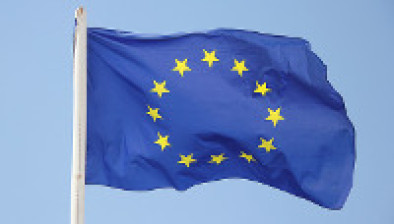General Court of the EU dismissed action by Nike and Converse over Netherlands tax ruling

The General Court of the European Union has dismissed an action brought by Nike and Converse against the European Commission’s decision to initiate a formal State aid investigation in respect of their tax arrangements in the Netherlands.
In 2019, the Commission decided to initiate a formal investigation procedure in respect of tax rulings issued by the Netherlands tax administration to Nike European Operations Netherlands in 2006, 2010, and 2015, and to Converse Netherlands in 2020 and 2015.
The tax rulings validate for tax purposes a transfer pricing arrangement, in particular the level of royalties payable by Nike and Converse to other Nike group companies, which are not taxed in the Netherlands, in return for the use of intellectual property rights. The royalties are tax-deductible from the taxable revenue of Nike and Converse in the Netherlands.
According to the Commission’s provisional assessment, those tax rulings conferred a selective advantage in that the corporate income tax for which Nike and Converse were liable in the Netherlands was calculated on the basis of an annual level of profit lower than it would have been if those companies’ intra-group transactions had been priced at arm’s length for tax purposes.
The amount of royalties owed by Nike and Converse did not correspond to the amount that would have been negotiated under market conditions for a comparable transaction between independent companies, according to the Commission.
It was against that background that the Commission decided, in 2019, to open a formal investigation procedure to determine whether there might be any unlawful State aid.
Nike and Converse asked the General Court of the European Union to annul the Commission’s decision. They put forward arguments alleging breach of the obligation to state reasons, manifest errors of assessment, and non-compliance with procedural rights.
In its judgment, the General Court did not accept any of the arguments put forward and dismissed the action in its entirety.
The court found that the contested decision contains a clear and unequivocal statement of reasons for the investigation and therefore Nike and Converse cannot contest that the Commission’s reasoning as regards the individual character of the measures at issue was incomplete.
Consequently, the court found that the Commission did not fail to fulfil its obligation to state reasons.
On the matter of alleged manifest errors of assessment the court found that the tax rulings at issues were merely declaratory in nature and did not constitute a prerequisite for operating in the Netherlands or for using the arm’s length principle.
It noted that it is for the Commission to compare the taxable profit of the beneficiary with the position, as it would be if the normal tax rules under Netherlands law were applied, of an undertaking in a factually comparable situation, carrying on its activities in conditions of free competition.
The court stated that the aim of initiating the formal investigation procedure is to enable the Commission to obtain all the views it needs in order to be able to adopt a definitive decision. The court found that the Commission satisfied its obligation to initiate the formal investigation procedure when there were serious difficulties, and that it did so without making manifest errors of assessment.
Finally, the court ruled that the Commission had carried out its provisional assessment of the measures at issue in a diligent and impartial manner, and that it did not breach the principle of good administration.







